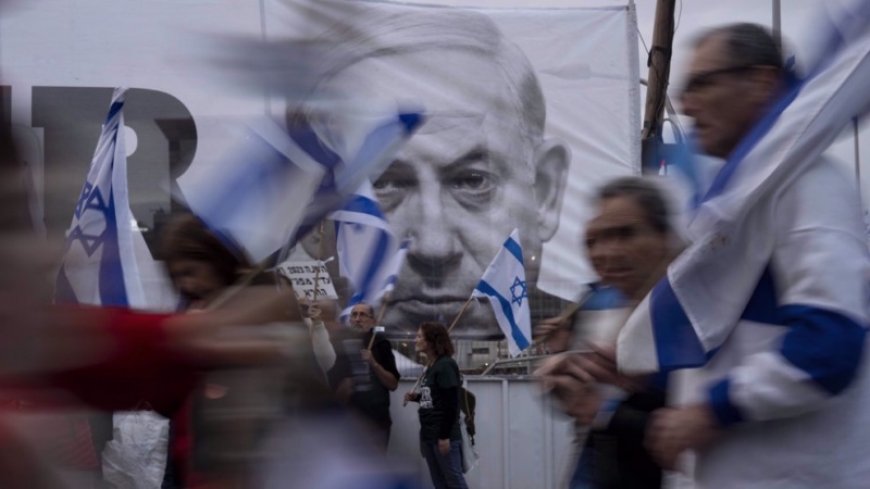Israeli protesters vow to stay there until Netanyahu's 'judicial reform' is scrapped

An Israeli protest leader has vowed demonstrations in the occupied territories will continue after Prime Minister Benjamin Netanyahu announced his controversial plan to overhaul the regime's judiciary will be postponed until next month.
"As long as the legislation goes ahead and is not put on hold, we will be on the streets," said Shikma Bressler, one of the main leaders of the protest movement, after Netanyahu announced this in a televised address on Monday.
Bressler said Netanyahu and his fellow coalition partners are clearly committed to pushing ahead with their "dictatorship laws" at the next Knesset session, due in a month.
She said the proposed changes, which would limit the Supreme Court's powers to rule against the legislature and executive and would give Israel's Parliament (Knesset) the power to overrule Supreme Court decisions by a simple majority of 61 votes out of 120 overruling would be "detrimental to Israel's economy and security."
Netanyahu announced Monday night that he was temporarily freezing the law that would change the makeup of Israel's judicial system. He said he was determined to pass judicial reform.
He spoke after tens of thousands of Israelis demonstrated outside the Knesset and workers launched a general strike in a dramatic escalation of the mass protest movement to stop his plan.
The chaos left many cities paralyzed and threatened to cripple economies as flights at Ben Gurion International Airport were suspended and work at major seaports halted.
Kindergartens and shopping centers were also closed, as were branches of fast-food chains.
Shortly after the speech, the head of the largest union, Histadrut, said it would call off a general strike.
Opposition leader Benny Gantz said the decision was "better late than never" but he would not compromise in any dialogue about the new law.
Netanyahu had said so-called judicial reform will stop courts from overusing their powers, but critics say they will help him if he faces an ongoing corruption trial.
The battle over the plans highlights the deep rift in Israeli society between supporters of the incumbent right-wing government, who say the judicial changes are necessary, and the growing number of people opposed to Netanyahu's plan, who argue the moves will bolster independence of the judiciary will be weakened.
Israeli President Isaac Herzog had previously called for the legislative process to be halted.
"For the sake of the unity of the people of Israel and out of responsibility, I call on you to stop the legislative process immediately," said Herzog on Monday morning.













































